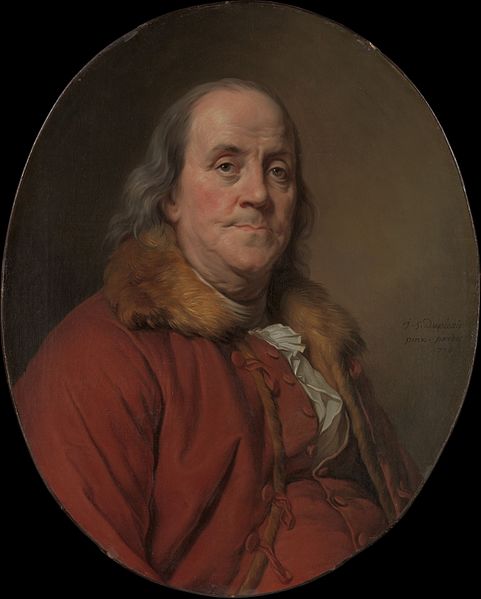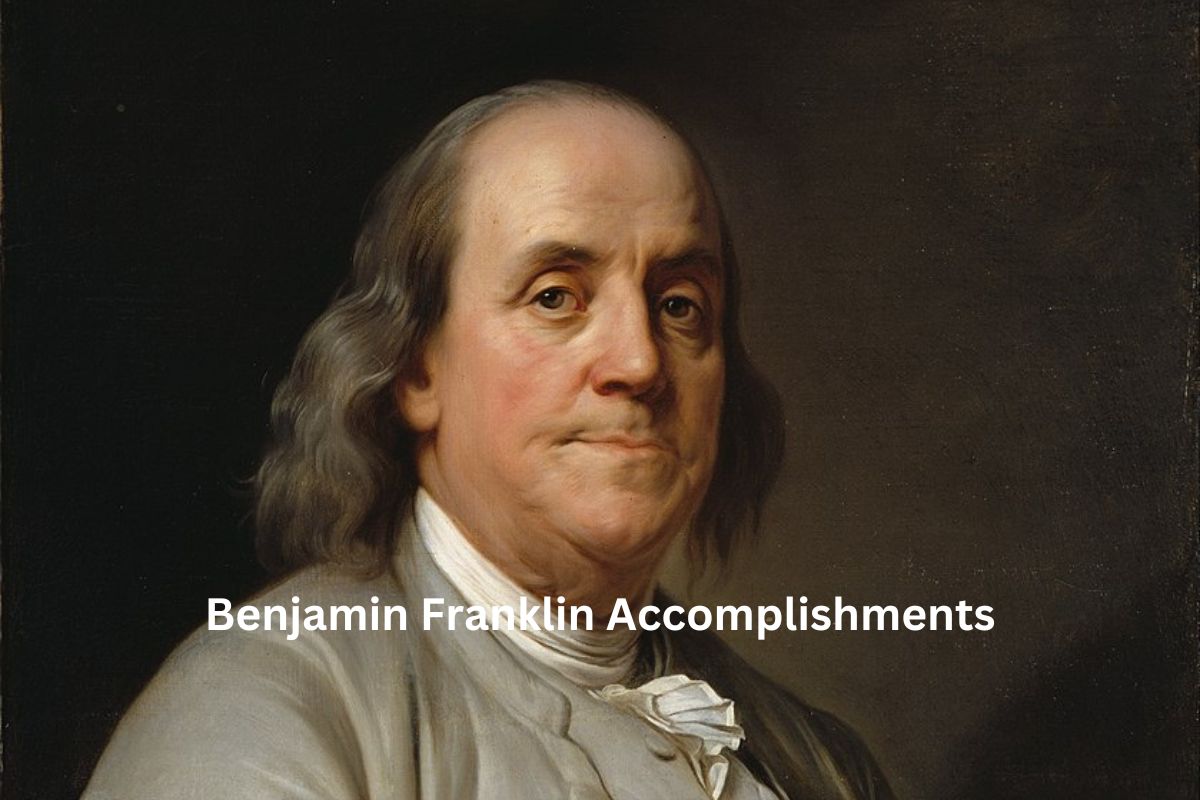Benjamin Franklin (1706-1790) was a polymath and one of the most influential figures in American history. Born in Boston, Massachusetts, Franklin rose to prominence as a printer, writer, inventor, scientist, diplomat, and statesman. He played a key role in the American Revolution and was instrumental in drafting the Declaration of Independence and the Constitution.
Franklin’s scientific experiments, including his discoveries in electricity, earned him international recognition. As an inventor, he is known for innovations such as the lightning rod and bifocals. Franklin’s writings, particularly Poor Richard’s Almanack, showcased his wit and wisdom, influencing American literature and thought.
He served as the first Postmaster General of the United States, improving the postal system’s efficiency. Franklin’s diplomatic skills secured crucial support from France during the Revolution, and he played a pivotal role in negotiating the Treaty of Paris, which ended the war.
A philanthropist and civic activist, Franklin contributed to the establishment of educational institutions, libraries, and hospitals. His enduring legacy as a Founding Father, inventor, scientist, and writer has made him an iconic figure in American history.
Accomplishments of Benjamin Franklin
1. Founding Father
Benjamin Franklin played a pivotal role in the establishment of the United States as a nation. He was one of the signers of the Declaration of Independence in 1776 and actively participated in the drafting of the Constitution.
Also Read: Facts About Benjamin Franklin
His intellectual contributions and commitment to the principles of liberty and self-governance greatly influenced the formation of the new nation.

2. Inventor (lightning rod, bifocals)
Benjamin Franklin’s inventive mind led to numerous practical innovations. One of his most famous inventions is the lightning rod.
By installing lightning rods on buildings, Franklin found a way to safely divert lightning strikes and protect structures from damage. His invention revolutionized the understanding and management of electricity.
3. Electricity experiments
Franklin’s experiments with electricity laid the groundwork for modern electrical science. His most famous experiment involved flying a kite with a metal key attached during a thunderstorm. By doing so, Franklin proved that lightning was an electrical phenomenon and that lightning and electricity were related.
Also Read: Timeline of Benjamin Franklin
This discovery had a profound impact on the study of electricity and led to advancements in various fields, including physics and engineering. Franklin’s contributions to electricity also include the invention of the lightning conductor and the concept of positive and negative electrical charges.
4. Author and publisher (Poor Richard’s Almanack)
Benjamin Franklin’s literary contributions were instrumental in shaping the intellectual and cultural landscape of colonial America.
He authored and published the renowned Poor Richard’s Almanack. This annual publication, filled with practical information, witty proverbs, and weather forecasts, became immensely popular among colonists.
It provided guidance on various aspects of life, promoting virtues such as industry, frugality, and self-improvement. Franklin’s writing style was engaging and accessible, making his works widely read and influential.
5. Civic activism (library, fire department, university)
Franklin was deeply committed to civic engagement and the betterment of his community. In Philadelphia, he was involved in various civic initiatives.
Franklin played a significant role in establishing the Library Company of Philadelphia, the first successful lending library in America, which aimed to promote access to knowledge for all.
He also helped establish the Union Fire Company, the first volunteer firefighting organization in the colonies, emphasizing the importance of public safety.
Additionally, Franklin was instrumental in founding the University of Pennsylvania, which aimed to provide practical education to aspiring artisans and tradespeople.

6. Skilled diplomat (secured support from France)
Benjamin Franklin’s diplomatic skills were crucial to the success of the American Revolution. He traveled to France as an envoy for the newly formed United States, seeking support for the American cause.
Franklin’s charm, intellect, and wit endeared him to the French, and he played a vital role in securing military and financial assistance from France.
His diplomatic efforts helped tip the balance in favor of the American colonies, ultimately leading to their victory in the Revolutionary War. Franklin’s diplomatic achievements were further highlighted by his participation in negotiating the Treaty of Paris in 1783, which formally recognized the United States as an independent nation and outlined the terms of peace with Great Britain.
7. Negotiated Treaty of Paris (ended Revolutionary War)
Benjamin Franklin’s diplomatic skills were showcased once again when he played a central role in negotiating the Treaty of Paris in 1783. As the representative of the United States, Franklin engaged in negotiations with British diplomats, including David Hartley.
The treaty, signed on September 3, 1783, officially ended the Revolutionary War and established peace between the United States and Great Britain. It recognized the independence of the United States, defined its boundaries, and secured important concessions, such as fishing rights in the Atlantic.
8. First Postmaster General of the United States
Franklin’s contributions extended to the establishment of an efficient postal system in the United States. In 1775, he was appointed as the first Postmaster General by the Continental Congress.
Franklin introduced several improvements to the postal service, including standardized rates based on distance traveled, regular and reliable mail routes, and the use of specific postmarks to ensure the security and authenticity of letters.
His reforms made the postal system more accessible, affordable, and efficient, contributing to the growth of communication and commerce across the nation.
9. Philanthropist (established initiatives and hospitals)
Benjamin Franklin was deeply committed to philanthropy and believed in using his resources for the betterment of society. Throughout his life, he established various philanthropic initiatives.
For instance, Franklin created a fund that provided loans to young artisans, enabling them to start their own businesses. He also played a significant role in the establishment of Pennsylvania Hospital, the first public hospital in the United States, which aimed to provide medical care to those in need.
Franklin’s philanthropic endeavors reflected his dedication to improving the lives of others and creating a more equitable society.
10. Scientist and scholar (research in various fields)
Benjamin Franklin had a curious mind and made significant contributions to various scientific fields. He conducted extensive research and experiments in fields such as meteorology, oceanography, and demography. Franklin’s studies on ocean currents helped improve navigation and shorten travel times.
He also made advancements in the understanding of weather patterns, discovering the Gulf Stream and proposing the concept of nor’easter storms. Additionally, Franklin’s interest in population studies led him to develop insights into demographics and birth rates.
As a scholar, Franklin co-founded the American Philosophical Society, a scholarly organization that aimed to promote knowledge and scientific inquiry. His intellectual pursuits and dedication to scientific discovery continue to inspire and influence researchers to this day.
